SUMMARY
This is AI generated summarization, which may have errors. For context, always refer to the full article.
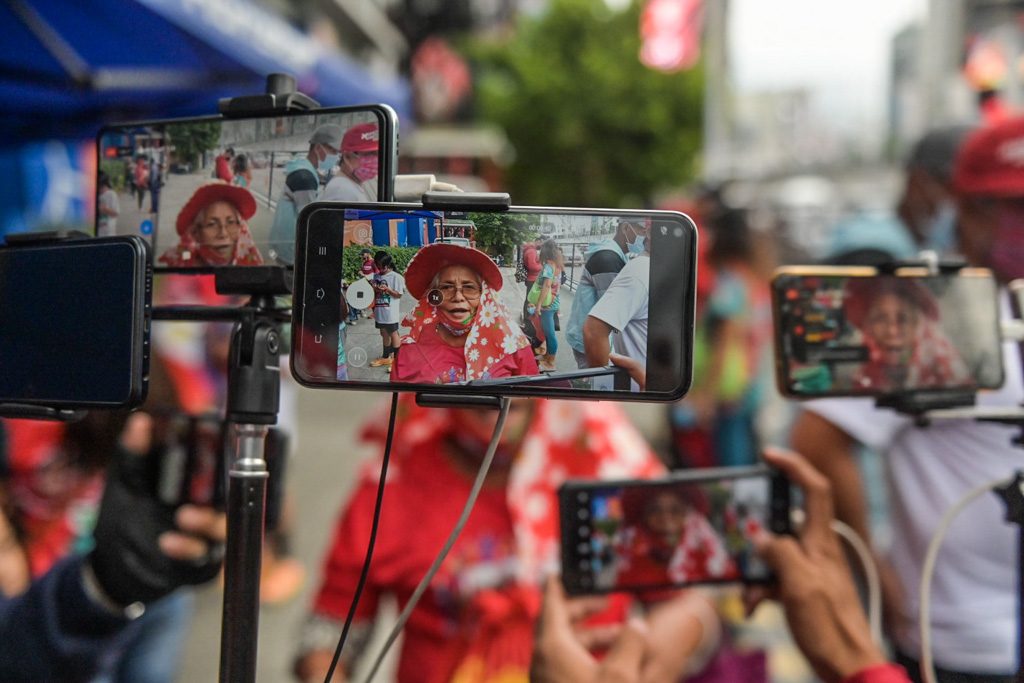
MANILA, Philippines – Pro-Marcos vloggers have formed a group to lobby for their access to Malacañang, a privilege that media observers have warned could jeopardize independent coverage of the country’s most powerful institution.
Vloggers formed the United Vloggers and Influencers of the Philippines (UVIP), their version of a press corps. This comes as incoming press secretary Trixie Cruz Angeles was still evaluating the rules of accreditation for influencers, which were crafted under the Duterte administration.
Rappler learned that UVIP is already seeking accreditation with the Securities and Exchange Commission. It is in the process of formalizing its constitution, by-laws, and code of ethics – documents that would bolster its chances of government accreditation. SEC accreditation and organizational principles are among the requirements of news outlets to be considered for Malacañang Press Corps membership.
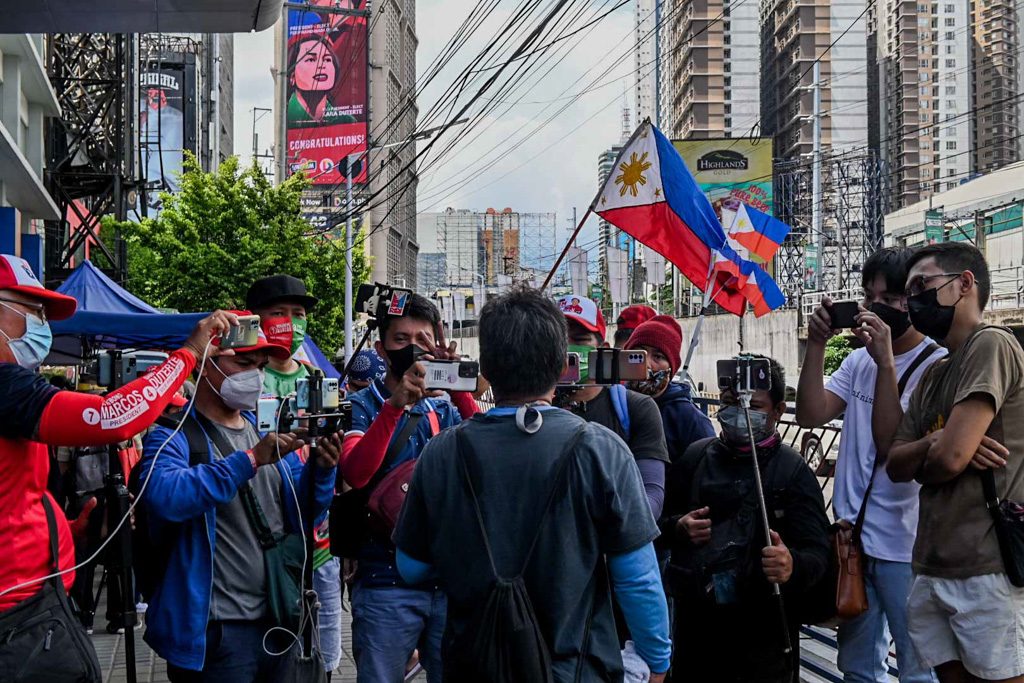
Rappler on Friday, June 17, sought to clarify with UVIP officers, vloggers Jarret Pulido and John Anthony Jaboya, what kind of SEC accreditation they were pursuing. Both were shown to have read our message but have not replied as of posting.
As of Monday, June 20, the UVIP consisted of around 30 vloggers and influencers with a combined subscriber base of at least 2.3 million. This is a figure that trumps the subscriber count of most individual Philippine media outlets.
UVIP’s immediate goal is government accreditation, with Malacañang being the prized institution. They find an ally in incoming president Ferdinand “Bongbong” Marcos Jr., whose only visible occupation before he was elected was being a YouTube vlogger.
In the long term, the group aims to obtain recognition and legitimacy. Many of its members describe the effort as a rejection of the supposed elitism and snobbery of traditional and mainstream media. Operationally, UVIP aims to have vloggers regulate themselves.
“We are pro-government. We are not anti-government…. We will be a partner of the government,” said John Anthony Jaboya, the man behind the YouTube channel “Sangkay Janjan,” in his live broadcast on Saturday, June 11.
Organizing UVIP, according to Jaboya, was not an idea from its leaders and members but from the incoming press secretary, their fellow vlogger and lawyer Trixie Cruz Angeles.
“It’s Attorney Trixie really who gave us the idea to form this organization so that we vloggers wouldn’t be belittled anymore,” Jaboya said in Filipino.
Welcome to the club
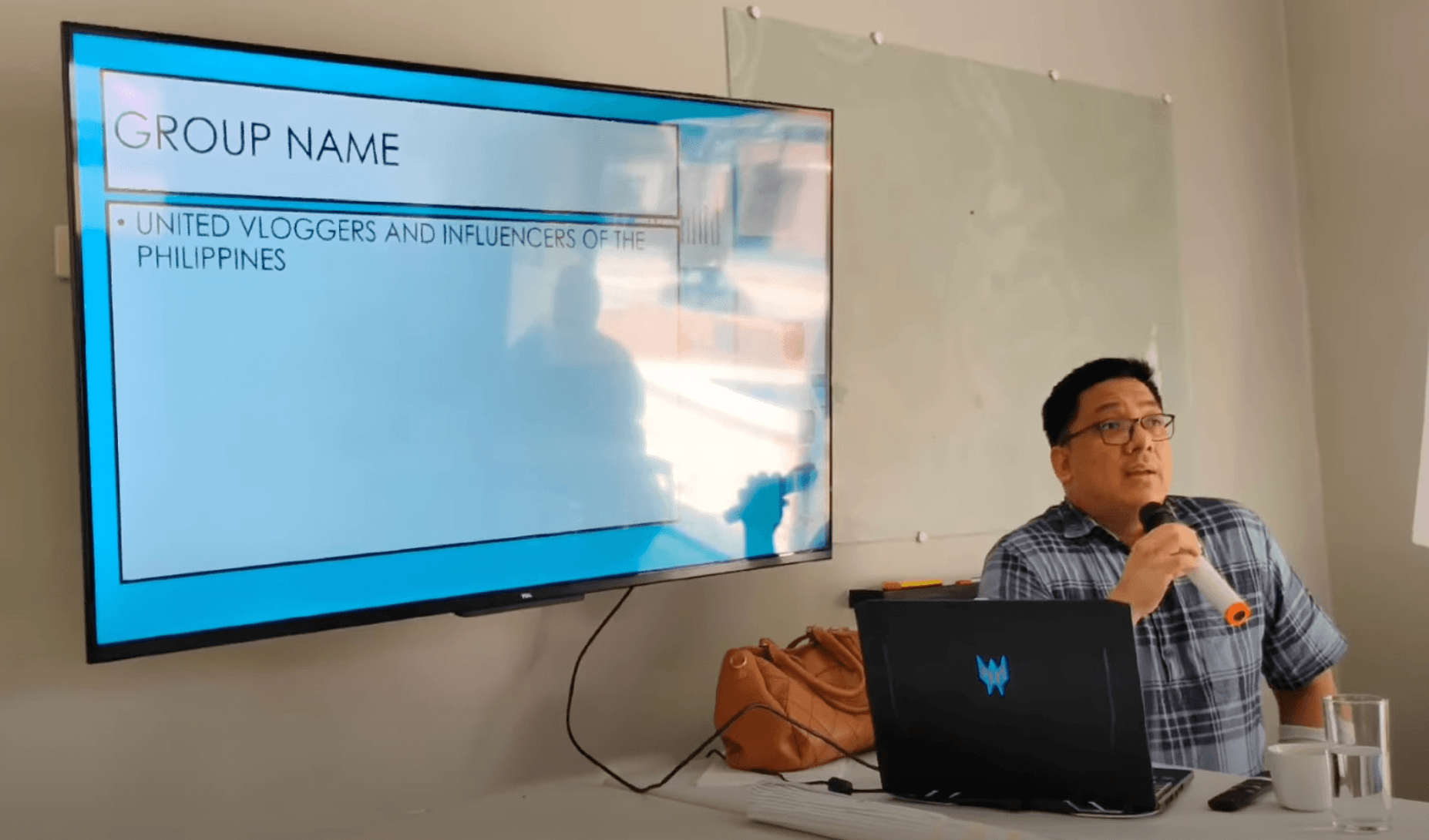
UVIP is led by pro-Marcos vloggers Jaboya and Pulido. They respectively stand as the internal vice president and the president of the group.
Pulido runs the YouTube channel Coach Jarret, which has around 180,000 subscribers, while Jaboya is the face of the Sangkay Janjan channel, the biggest pro-Marcos vlog by subscriber count at over 970,000.
Together with over a dozen members of UVIP, Jaboya and Pulido rented a resort in Amadeo, Cavite, from June 8 to 10. Each attendee paid P3,500 for the lodging.
To piece together what transpired, Rappler spoke with at least two vloggers present in the seminar and scoured through videos posted by members from their gathering.
Many of the attendees met for the first time. On the first day, the vloggers conducted what Filipinos typically call “team-building” activities, where they divided themselves into groups and played games to build camaraderie. They called themselves Team Gwapo, Team Norte, Team Loyalista, and Team Nutribun. Each group came up with a chant accompanied by dance moves.
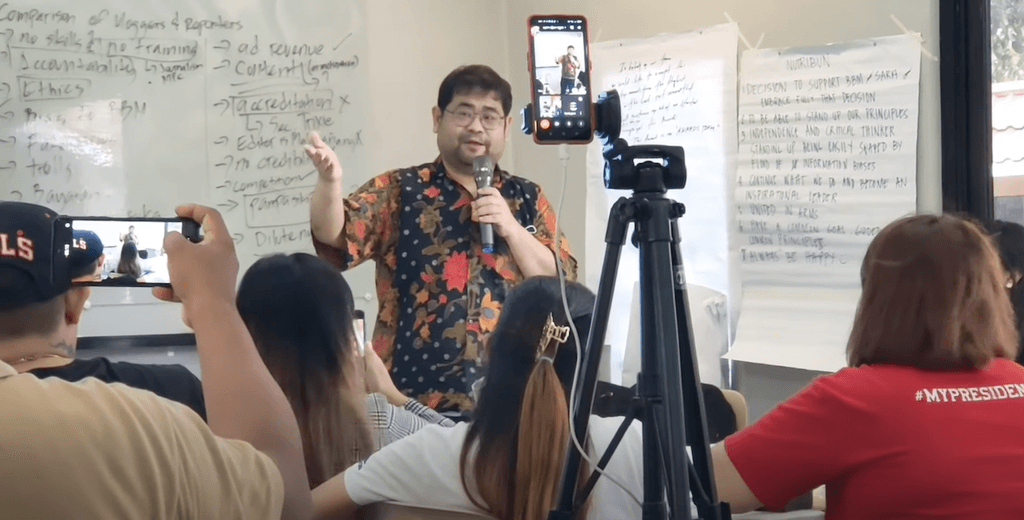
With trust fortified, the members thought of their collective mission, vision, and core values.
Among the values they aimed to uphold: “Winning the voice of the masses,” wrote Team Gwapo.
“Wala kaming boss (We have no boss),” wrote Team Norte.
“Continue what we do and become an inspirational leader,” wrote Team Nutribun.
On the second day, they were asked to study their code of ethics and the laws surrounding freedom of speech.
One of the sessions was led by lawyer Darwin Cañete, the controversial prosecutor who doubted the innocence of teenager Kian delos Santos, who was slain by cops in a supposed anti-drug raid. He warned the vloggers of their legal “limitations” and briefed them about libel.
Cañete told Rappler that he told the vloggers "not to post news or facts that lack basis" and "not to abuse their followings."
On the last day, the program was capped by an “awarding” ceremony, complete with certificates bearing the names of the attendees. Pulido handed them out himself to the joy of his colleagues.
The UVIP members then continued to play games and swim in the resort before coming home and vlogging about the experience.
Vlogging ethics
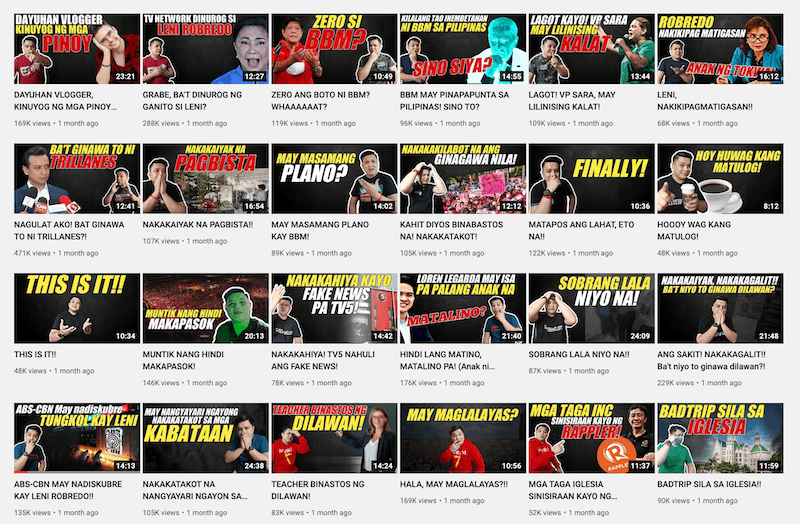
One of the values included in UVIP's draft code of ethics is the rejection of bias.
“Of course, we are biased because we are pro-BBM, but it is in our code of ethics that we will not be biased,” said a vlogger who requested anonymity.
Theirs will be patterned after the code of the Kapisanan ng mga Brodkaster ng Pilipinas (KBP), which sets ethical standards for over 50 member news organizations.
“If the Marcoses make a mistake, we will release it,” another vlogger said.
Among the values the KBP requires in its code of ethics are fairness and objectivity, corroboration of information, and the rejection of personal attacks – values that the members of the UVIP have not been observing in their incendiary pro-Marcos videos.
UVIP’s members, most notably their officials Jaboya and Pulido, gained YouTube prominence by promoting Marcos propaganda and by using their platforms to lambaste critics of Marcos and the outgoing Duterte government.
UVIP members have also consistently used their channels to attack the very people with whom they hope to cover in government events: members of the press.
In criticizing the press, many vloggers have attributed malice to standard newsroom editorial practices. To them, a reporter’s story undergoing multiple levels of fact-checking and corrections before publication is supposed to be proof of attempts to distort the story in pursuit of an “agenda.”
Many UVIP members have also used derogatory remarks, such as “fakestream media” and “bias media (sic),” to discredit reporters. They urge watchers to listen only to them and to controversial media outlets SMNI and NET25 –networks which publicly endorsed Marcos and running mate Sara Duterte in the last presidential and vice-presidential elections.
If they sign onto their code of ethics, the UVIP members would vow to be professional – a trait that could not characterize their casual, unfiltered, and Marcos-serving broadcasts.
“Bawal na lahat. Government projects na lang (All is forbidden. We’re only allowed to show government projects),” one vlogger said.
Different set of standards?
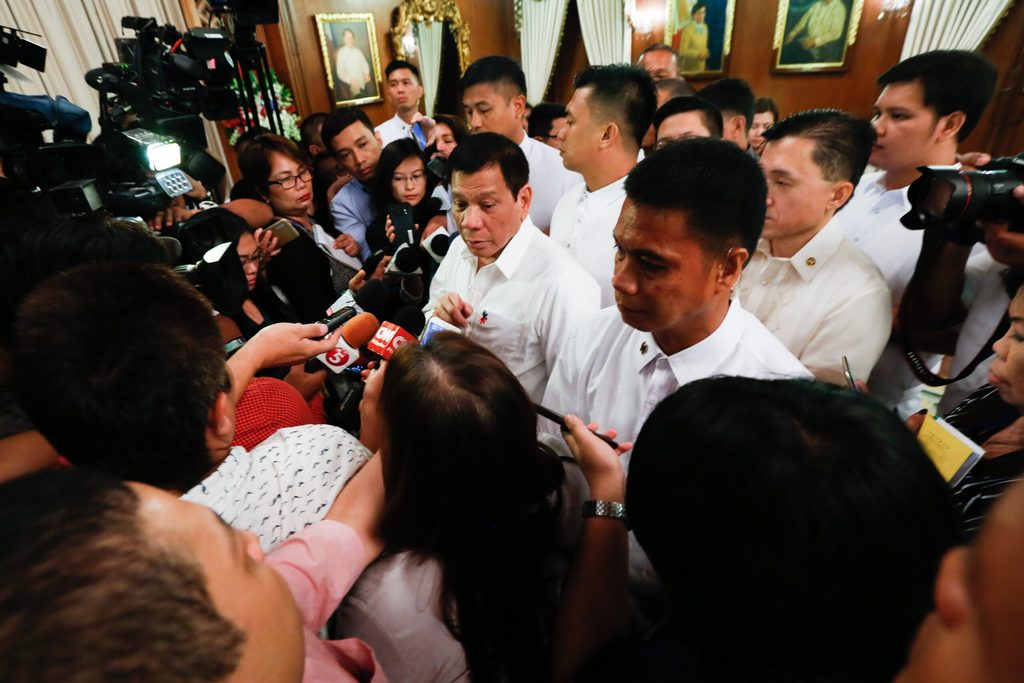
New rules as to how and who will accredit vloggers in Malacañang were still under review by the administration, as of June 16. The administration, according to Angeles, was considering follower count and engagement as criteria for accreditation.
University of the Philippines associate professor Danilo Arao said the planned standards lacked "qualitative analysis", which would include how the vloggers act and report, not just how much attention they commanded.
The accreditation of vloggers started under the administration of President Rodrigo Duterte with the rise of bloggers and influencers, who experts partly credited for the popularity of the tough-talking president.
These influencers joined Duterte's foreign trips, and over a dozen were even accredited to cover the ASEAN Summit in August 2017. Rappler reported on the accreditation despite the lack of policy from the Duterte administration. Two days later, on August 9, 2017, Presidential Communications Operations Office Secretary Martin Andanar issued Department Order No. 15, with the subject “Interim Social Media Practitioner Accreditation.”
The guidelines required little from influencers for one-time access accrediations:
- Filipino citizenship
- At least 18 years old
- At least 5,000 followers on any social media platform
The accreditation was only valid per event or activity, which meant they had to request accreditation for each event they sought to cover.
What the vloggers want now is a long-term accreditation policy that matches what is afforded to professional journalists. Arao found this to be "dangerous," explaining that accreditation was deliberately selective for traditional, logistical, and accountability reasons.
The tradition referred to journalism as a profession recognized as important by the Constitution: only a select number of people have the experience and training to watch over government institutions, and these people passed down the best practices to cover people in power. The logistical concern, meanwhile, is that Malacañang could only grant so much seats for a select number of people to cover the Office of the President.
Journalists, Arao explained, are also subjected to a process that held them accountable. The work of journalists go through multiple layers of verification and scrutiny, from editors to media watchdogs, and they can be taken to court for their work.
This also explains the strict rules for getting admitted to the Malacañang Press Corps.
The Malacañang Press Corps (MPC) accredits per news organization, not per individual. It requires that outlets be in operation for at least one year and that they be registered with the Securities and Exchange Commission. New applicants even undergo a six-month probationary period.
According to MPC’s by-laws, members are expected to follow Palace rules and “observe the highest form of ethical standard of journalism.” At the same time, they are also explicitly discouraged from lobbying, doing public relations, and partisanship.
"The MPC vets applicants to ensure that only legitimate media outlets will be part of its roster," MPC president Evelyn Quiroz told Rappler in a text message.
Quiroz said, "MPC has no say if Malacañang or PCOO accredits, subject to protocols and guidelines, vloggers to cover the Palace beat, but the MPC will continue to adhere to its by-laws with regard to its membership."
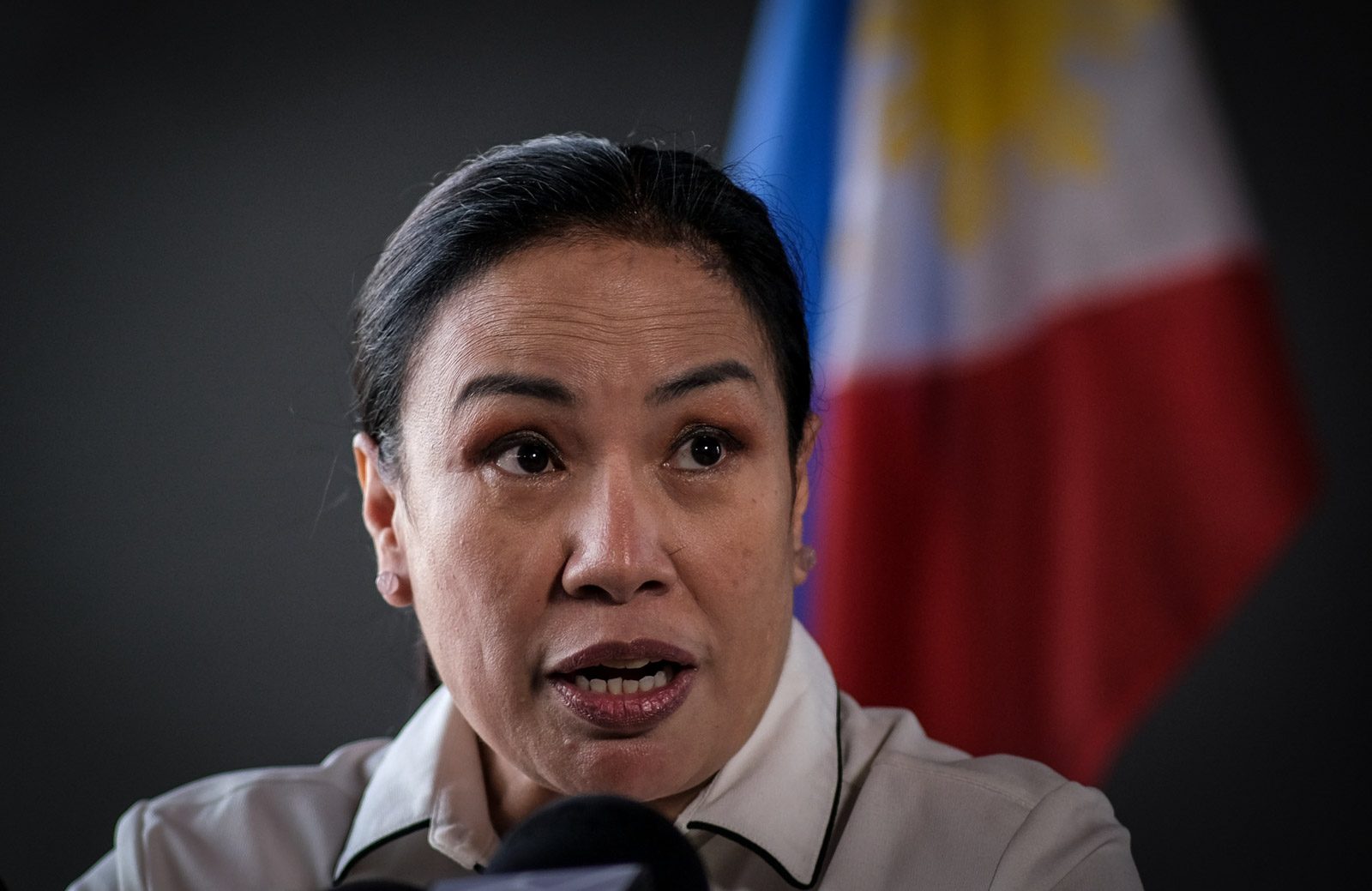
During their seminar, the vloggers gathered and made a list on a whiteboard: “comparison of vloggers and reporters.”
They admitted that they lacked “skills and training,” still needed a code of ethics, and acknowledged their “bias to BBM.” UVIP was envisioned to answer these problems.
University of the Philippines assistant professor of communication Fatima Gaw saw the group's goal as to “professionalize” vloggers. But she argued that a group with written standards would not be enough for vloggers to change their ways.
Pro-Marcos vloggers continue to have more incentives to remain the same, Gaw pointed out. If vloggers stopped churning out disinformation-laced inflammatory videos in exchange for access, it could mean the loss of views, subscribers, and, ultimately, income.
One vlogger Rappler spoke with said smaller vloggers would suffer the most with UVIP because they still did not have a loyal audience that would continue watching them if they suddenly cooled down. The star vloggers, meanwhile, already enjoyed a sizeable and loyal following.
“There must be incentives in place for them to do so, and what we are seeing now is that they are incentivized for not having those same expectations of accountability to the public to do fair and objective reporting," Gaw told Rappler in a text message.
Arao painted a picture: "Imagine a reporter asking a question in a press conference about an urgent national issue and then a vlogger comes next, asking that the official give a birthday greeting to one of their followers," Arao said.
He added: "We are not defining them as not having any right to report on what is happening in our society, but they have to do it responsibly." – Rappler.com
Add a comment
How does this make you feel?
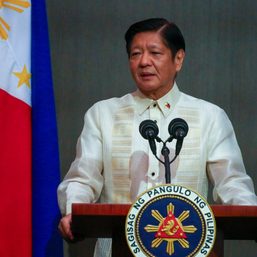
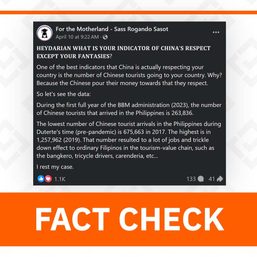
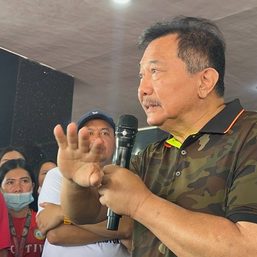
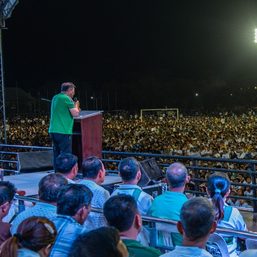
![[Just Saying] Marcos: A flat response, a missed opportunity](https://www.rappler.com/tachyon/2024/04/tl-marcos-flat-response-april-16-2024.jpg?resize=257%2C257&crop=277px%2C0px%2C720px%2C720px)
There are no comments yet. Add your comment to start the conversation.